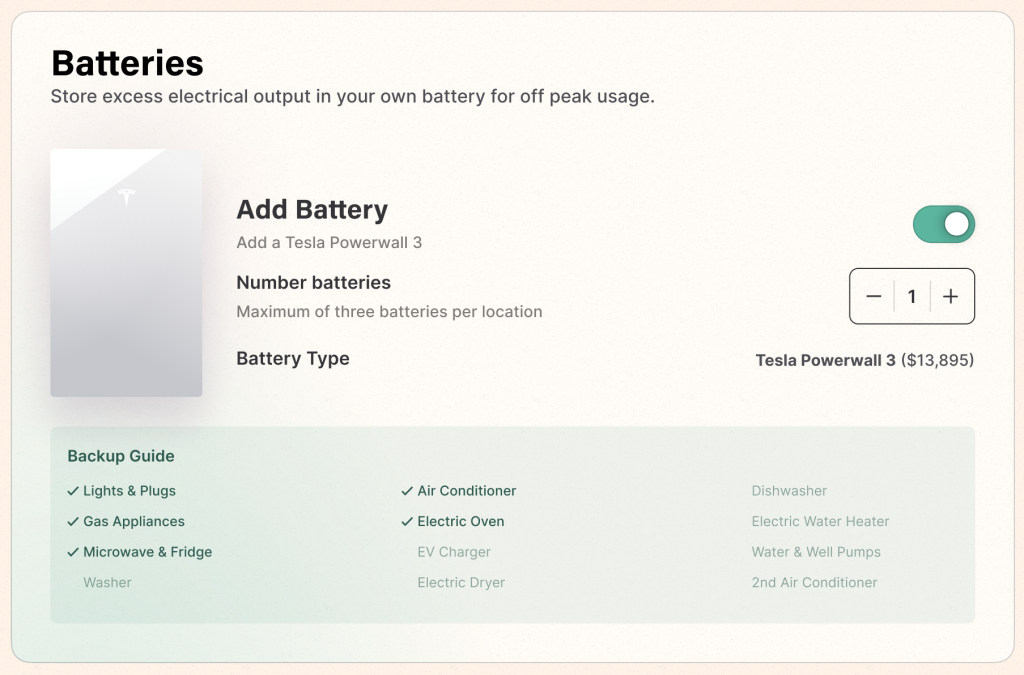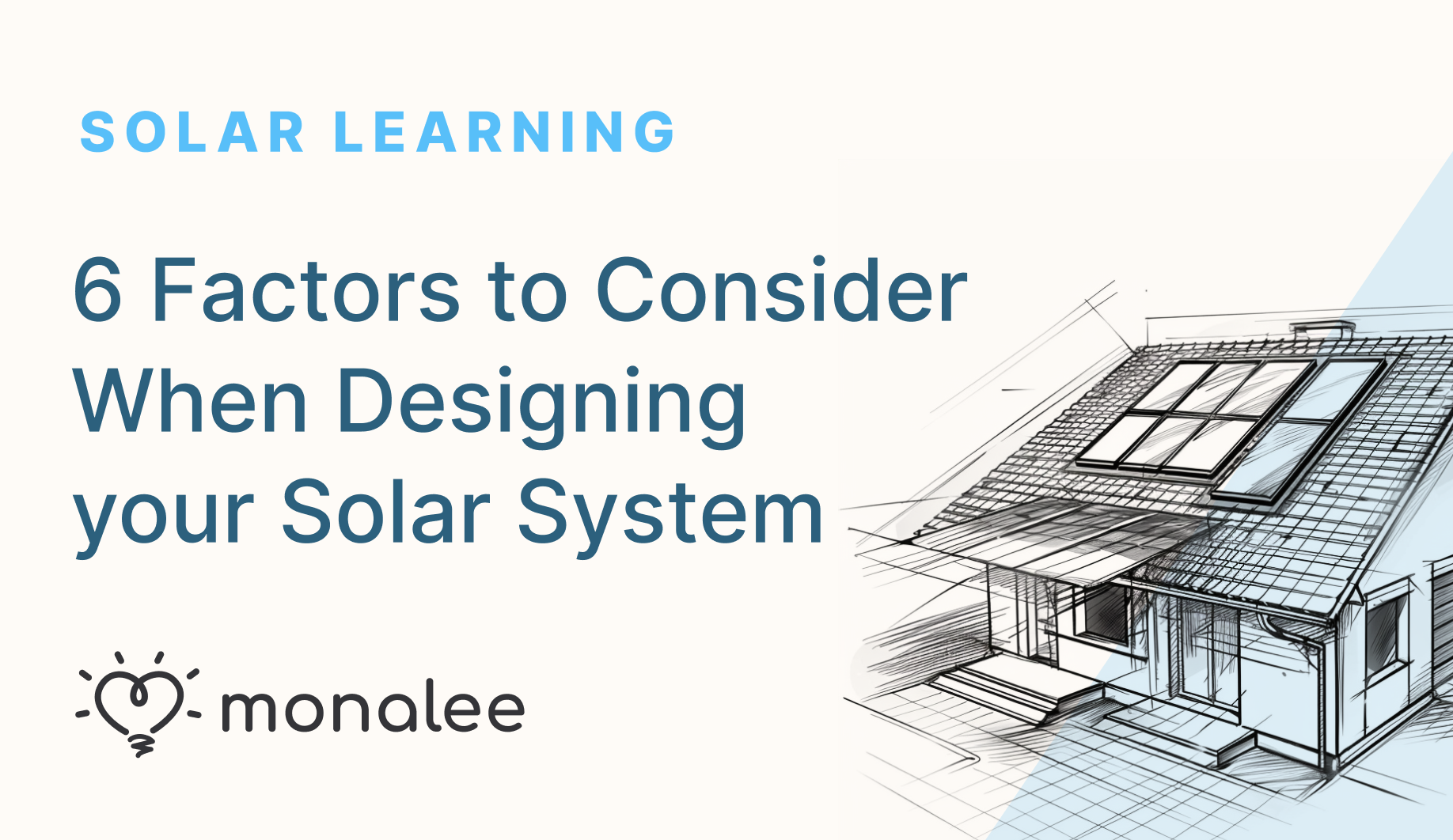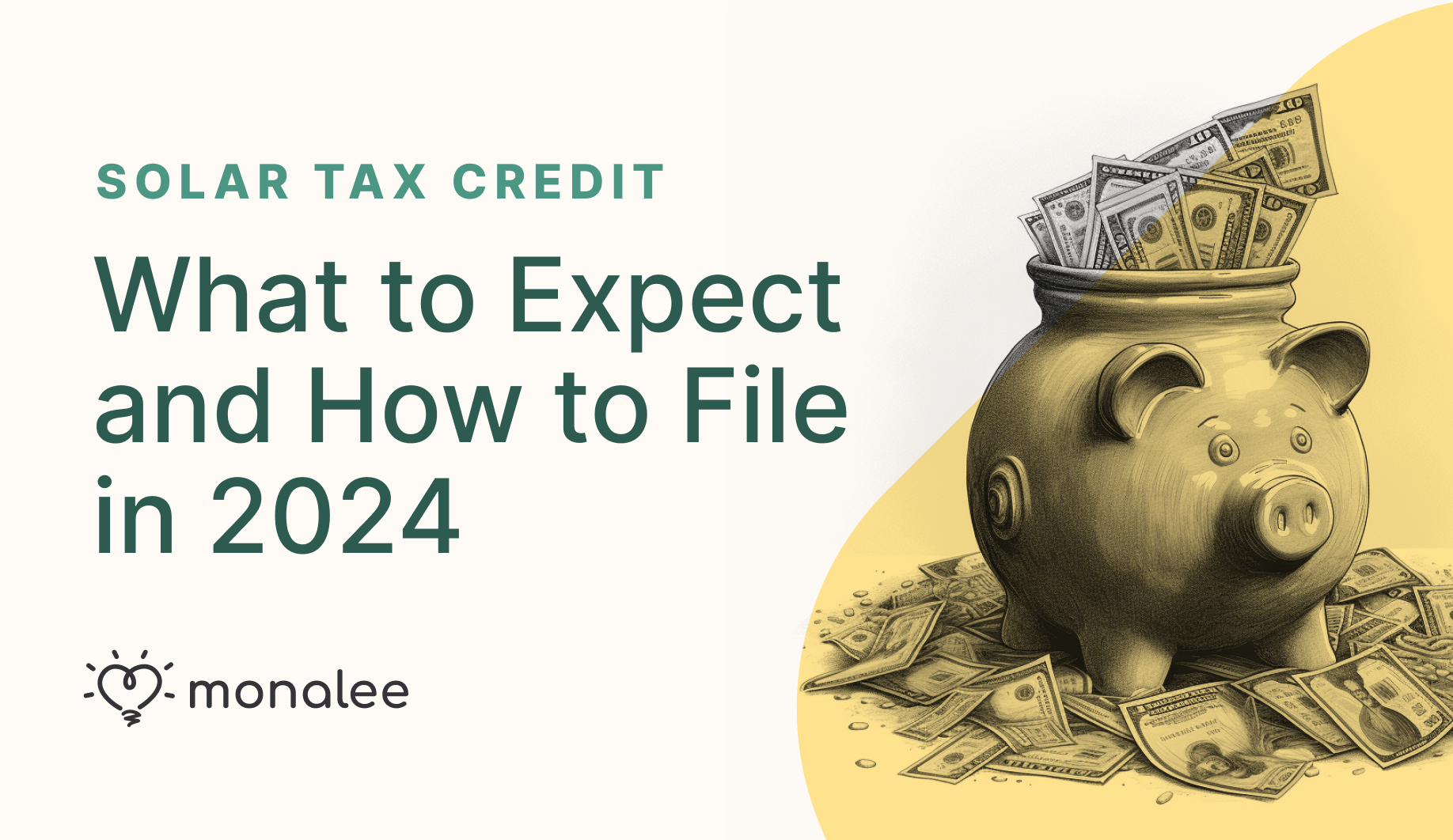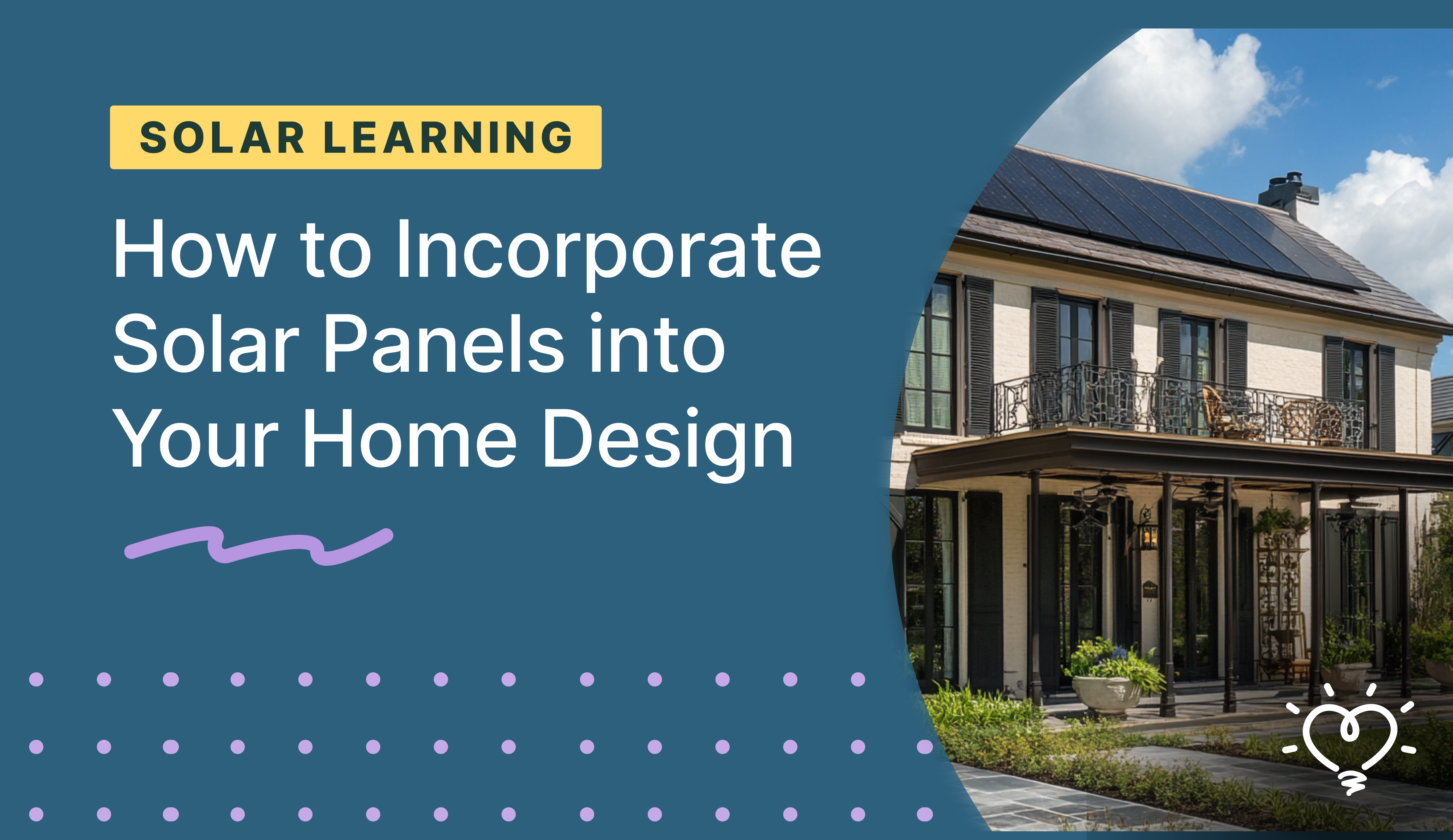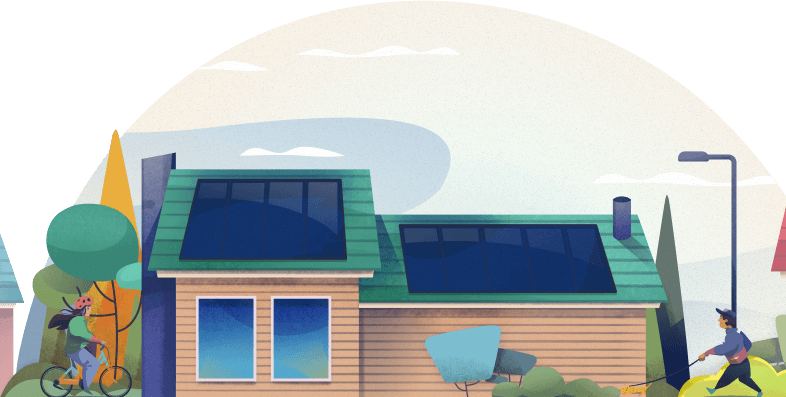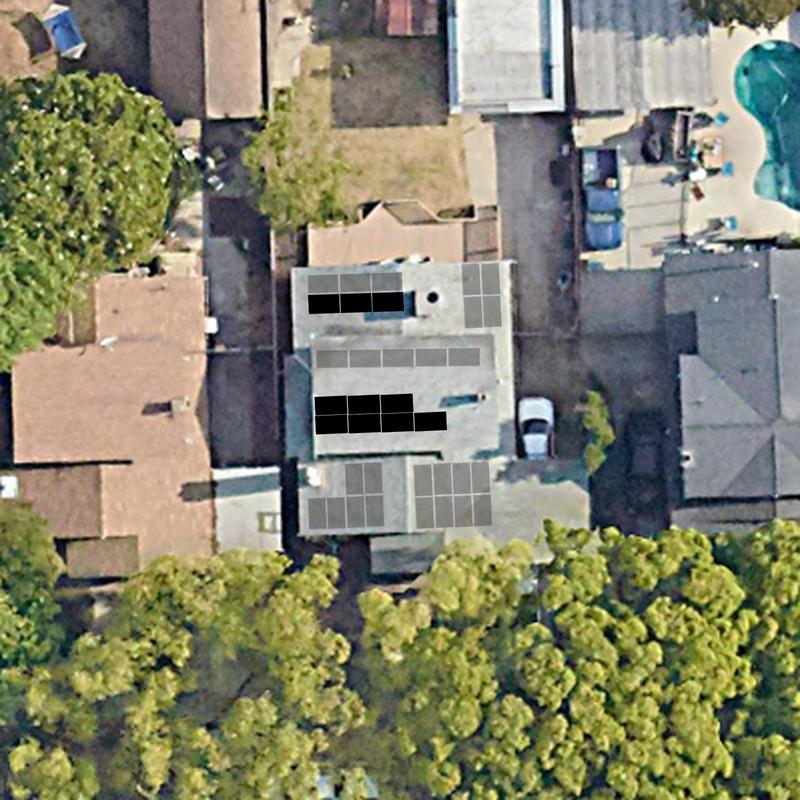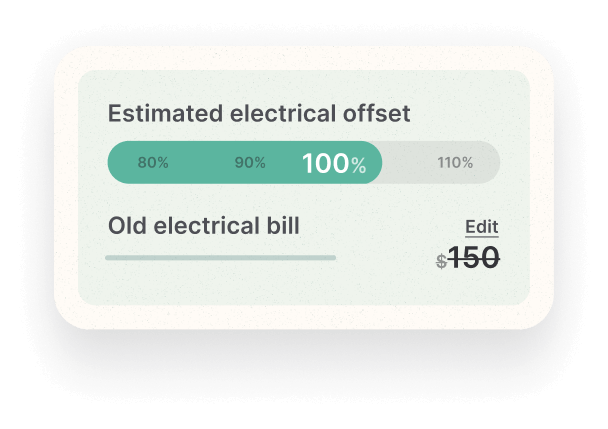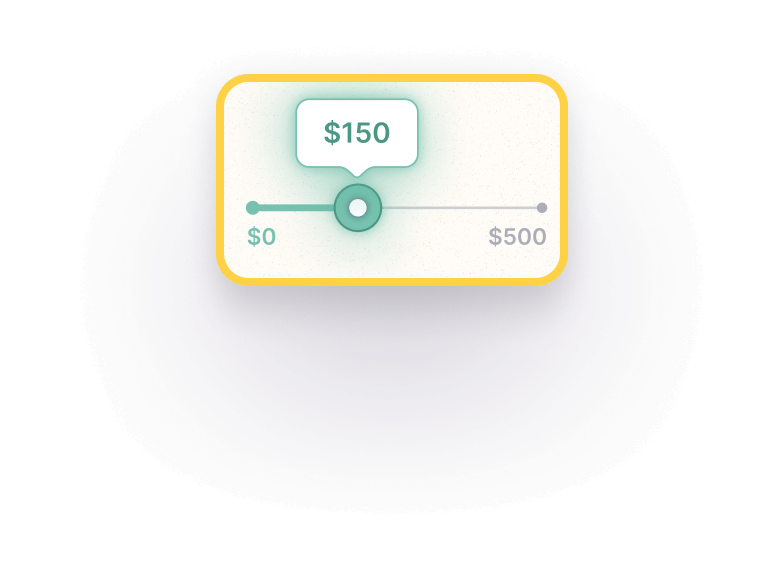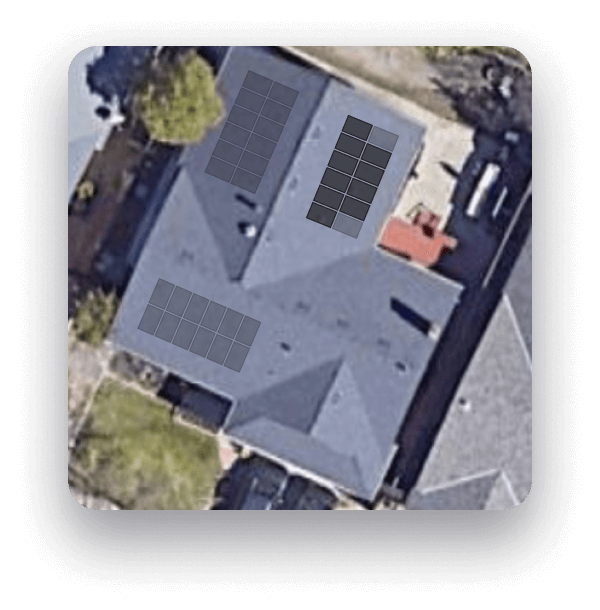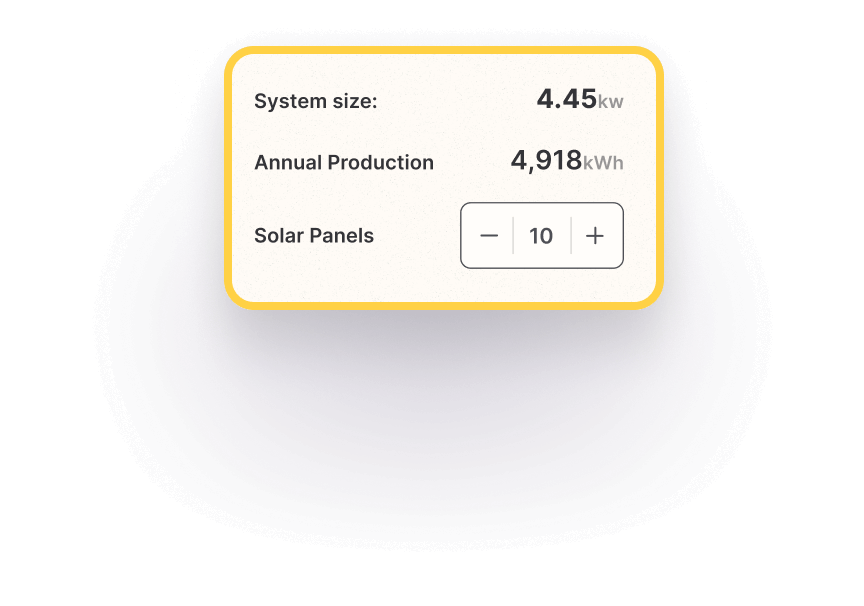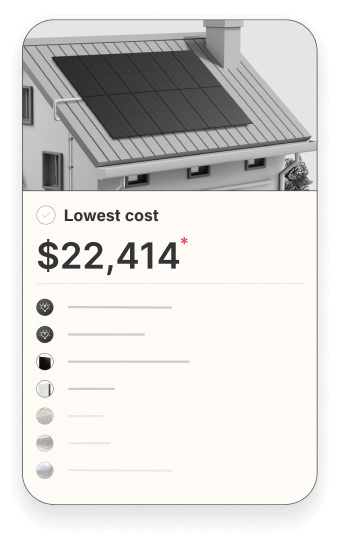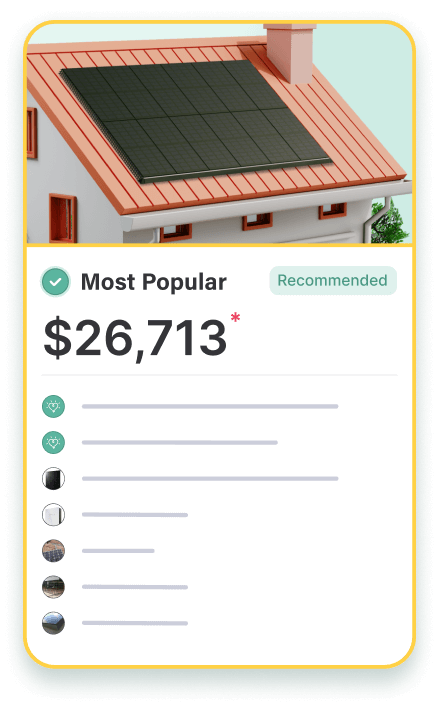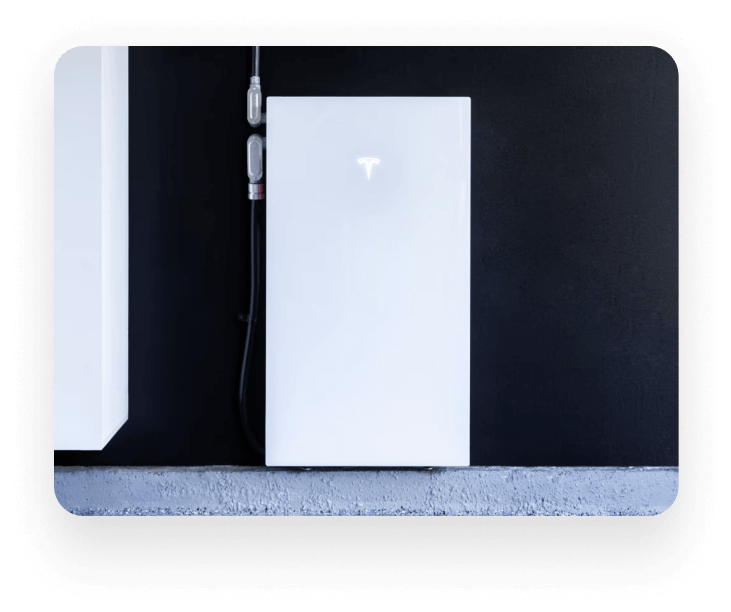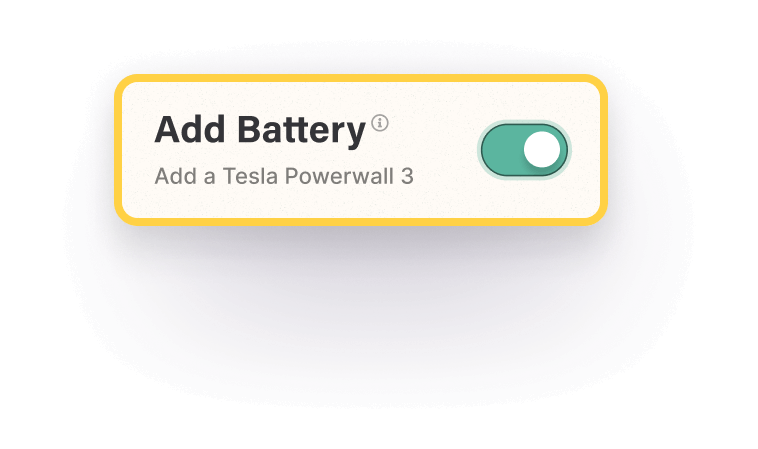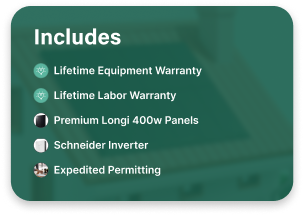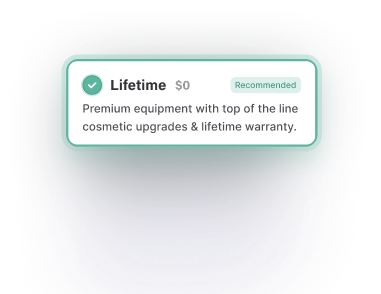Buying a backup battery isn’t a prerequisite for going solar, but we definitely recommend it.
Buying a backup battery isn’t a prerequisite for going solar, but we definitely recommend it. Batteries allow you to use stored power at night and reduce tapping into the grid. Battery storage offers homeowners more power, flexibility, and efficiency. They’re also quieter than generators and safe both inside and outside the home.
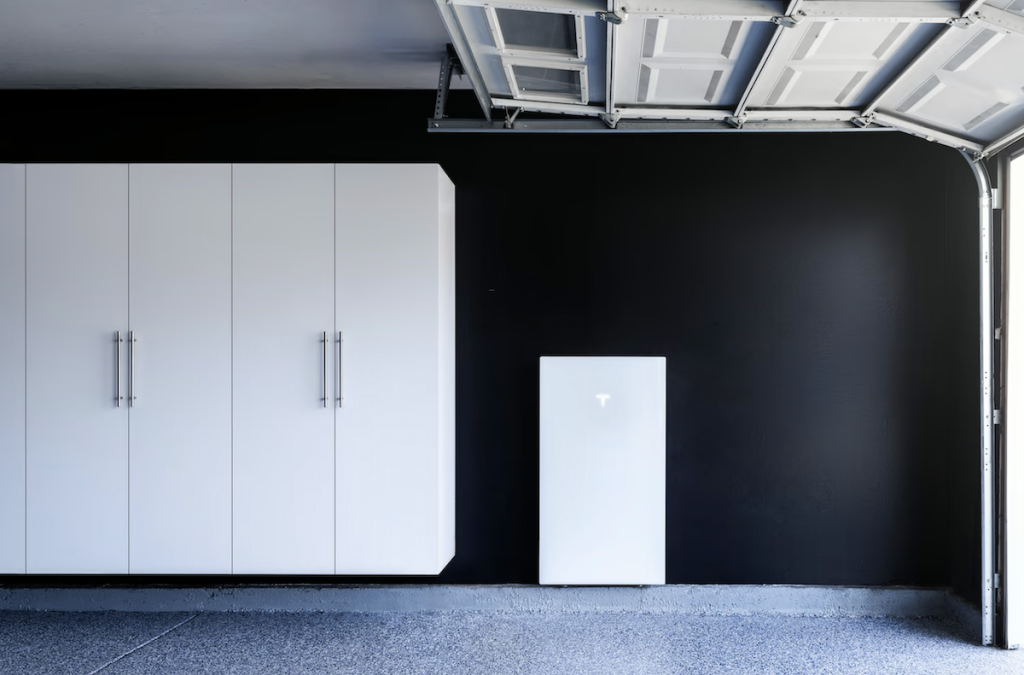
Consider your goals for getting a battery
There are a few reasons why you might be looking to invest in a battery. Here are five of the most common:
1. Saving money
Most homeowners who come to us are looking to save money on their electric bills. Many states, especially California, are seeing significant price hikes with no sign of things slowing down. Batteries are extremely beneficial for those who have NEM 3.0 in California because they only get about a fourth back in tax credit. Storing their energy will gives them a higher return on investment (ROI) than giving to their utility company. Switching to solar allows homeowners to save on their monthly utility bills for as long as their solar systems are fully functioning, which is 25 years or more.
2. Offsetting your carbon footprint
Going solar has many advantages that go beyond energy and financial savings, and certainly outweighs any misconceptions about solar you may have heard. Solar energy is a type of renewable resource, meaning that it doesn’t produce greenhouse gasses or weak havoc on the environment like fossil fuels do. Solar panels have also been shown to improve air quality and reduce water use. The cleaner the air is, the fewer people struggle with respiratory-related diseases.
3. Gaining energy independence
At its core, energy independence means that a household or any entity generates its own energy, reducing or even eliminating reliance on traditional power grids. Personal energy independence refers to those homeowners who adopt a self-sufficient approach to energy usage without relying on their local electricity grid. The less you rely on the local grid to power your home, the more immune you are to sudden electricity rate increases.
4. Having a backup power source
Many homeowners choose to add a solar battery to their Monalee projects as a way to protect against power outages in their area. If a blackout does occur, you’ll be disconnected from the local grid (as a safety precaution) and can then power your home using the excess energy stored in your battery.
5. Going fully off-grid
Taking things a step further, some people may choose to live fully off-grid. When a homeowner is off-grid, their home is not connected to their utility company’s local grid. While it might feel empowering to be fully energy independent, having no grid backup can be dangerous should a big storm roll into town or a piece of solar equipment break. For these reasons, most AHJs don’t allow homeowners to completely disconnect their homes from the grid.
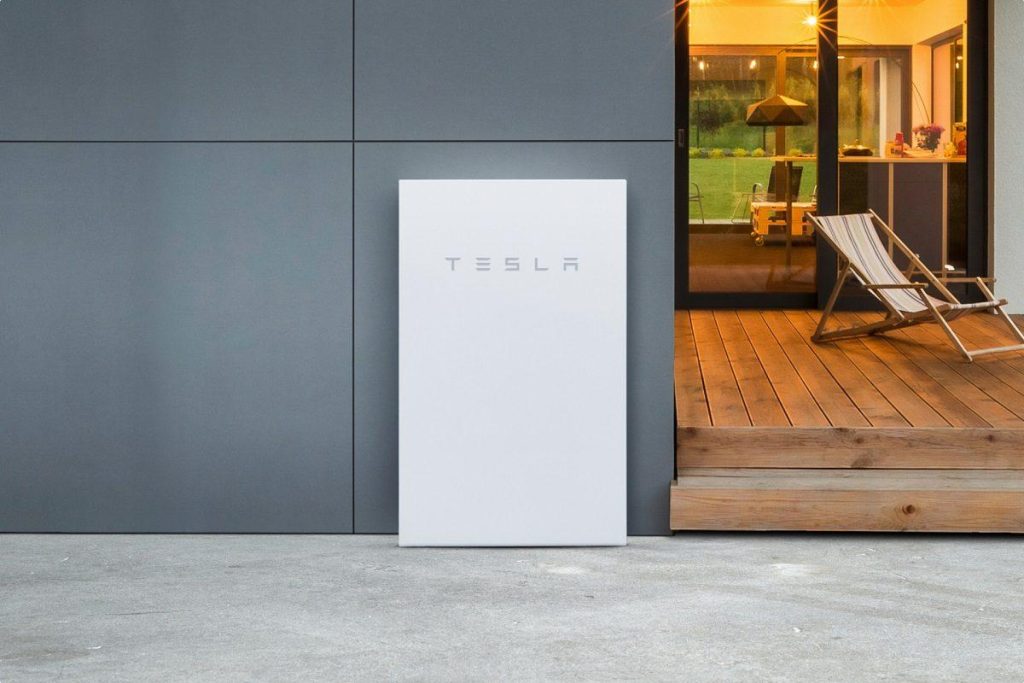
Understand your energy needs
Gaining an understanding of how much energy your home runs on is usually a good indicator of how many solar batteries you should buy. In our experience, one battery is usually the go-to if you’re simply looking for an emergency backup during a power outage or when you need extra energy to power your home during peak summer season.
We’ve also found that homeowners who live in states where there are frequent power cuts–Florida and Texas, for example–invest in one or more batteries as a safeguard against hurricanes and other types of inclement weather.
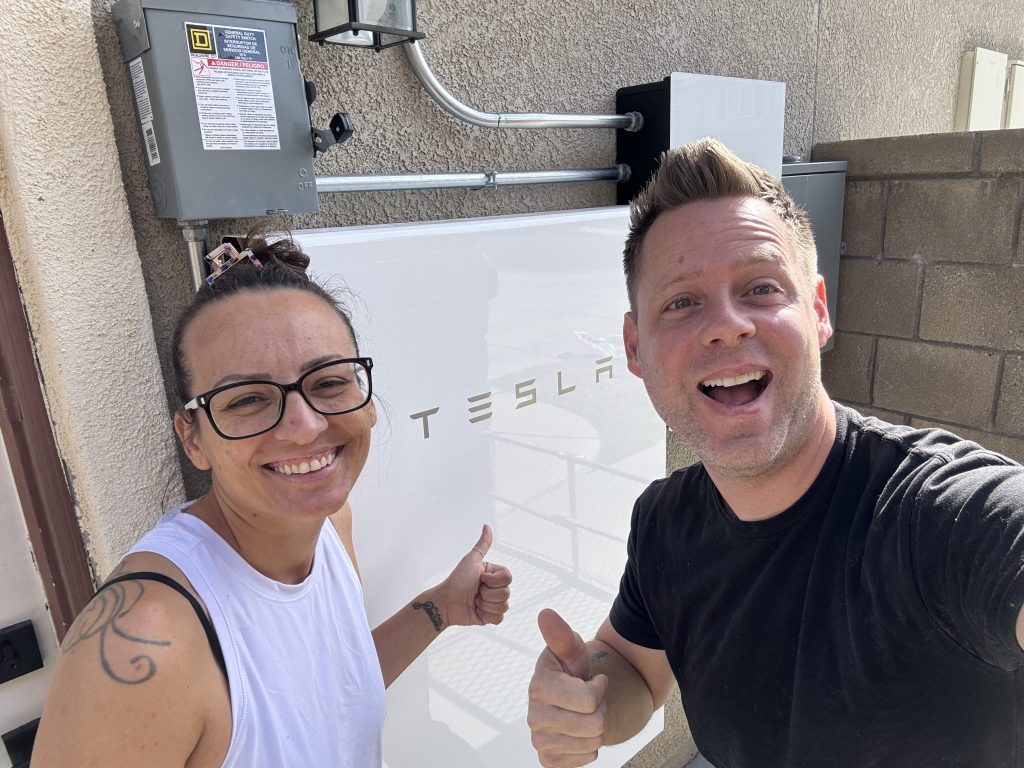
Prioritize your loads
The number of batteries to buy depends on how much of your home you want to power during a blackout. Backup loads are designated devices that are considered essential during a power outage.
Many homeowners designate kitchen electronics, such as their refrigerator, stove, and heating as their backup loads. If a blackout does occur, these devices will continue working. If you want your entire home to stay up and running, you’ll want to invest in three or more batteries just to be sage.
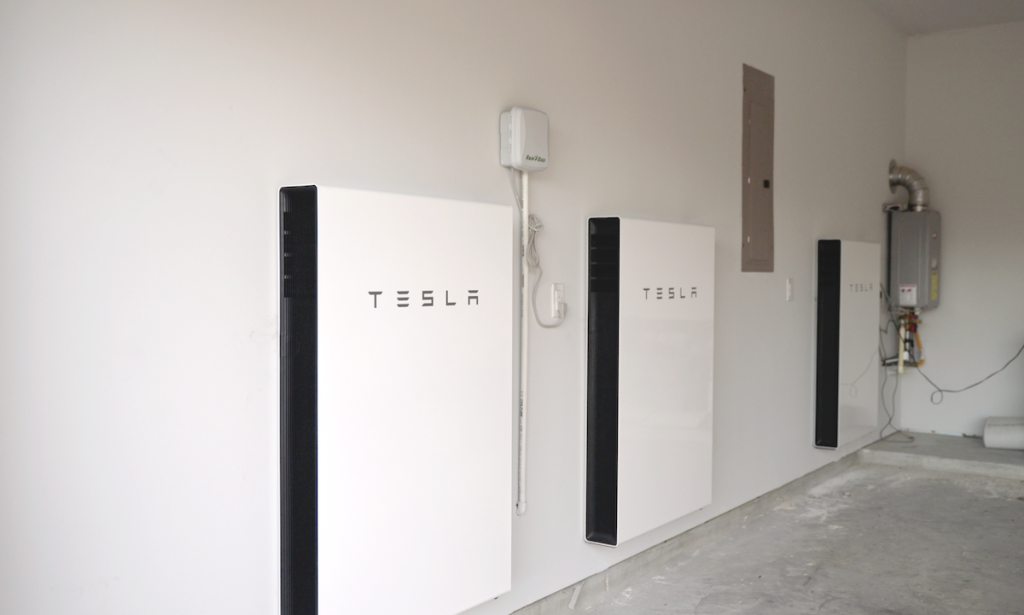
Calculate how many storage batteries you will need
The number of batteries you’ll need largely depends on your energy consumption and the size of your solar system.
Here are three things you’ll want to look at:
- Time (in hours): Think about thow many hours each day you will want your solar batteries to power your home. An example of this would be the evening hours, as the sun is no longer energizing your panels.
- Electricity Demand (in kW): Decide which appliances you want to be protected during a power outage. Do you want just the essentials to continue running or for your home to stay fully energized?
- Battery capacity (in kWh): On average, a solar batter is about 10 kilowatt-hours in size. Keep this in mind when determining how many batteries you will purchase.
Once you have the three numbers above, multiply the demand for the appliances you want to keep powered by how many hours they will need to be powered. This will give you the kilowatt-hour (kWh) capacity you’ll need as storage.
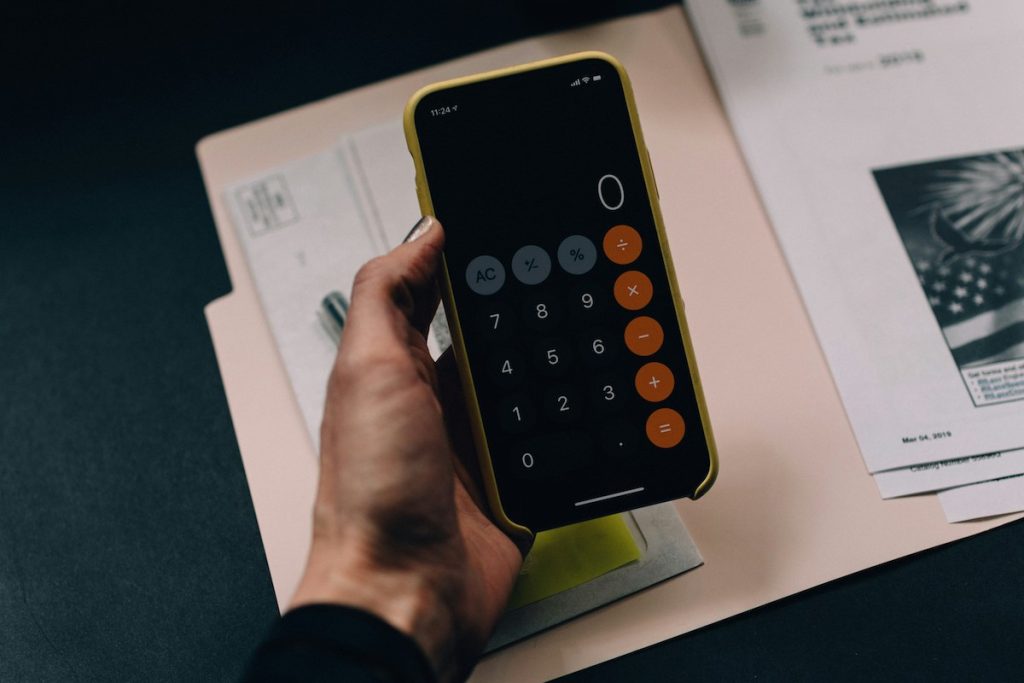
In conclusion
The number of batteries you buy depends on factors such as consumption, whether or not blackouts are common in your area, and if you want your entire home to remain running or just the essentials. We’ve found that around 30% of Monalee homeowners who get solar batteries through us buy more than one.
